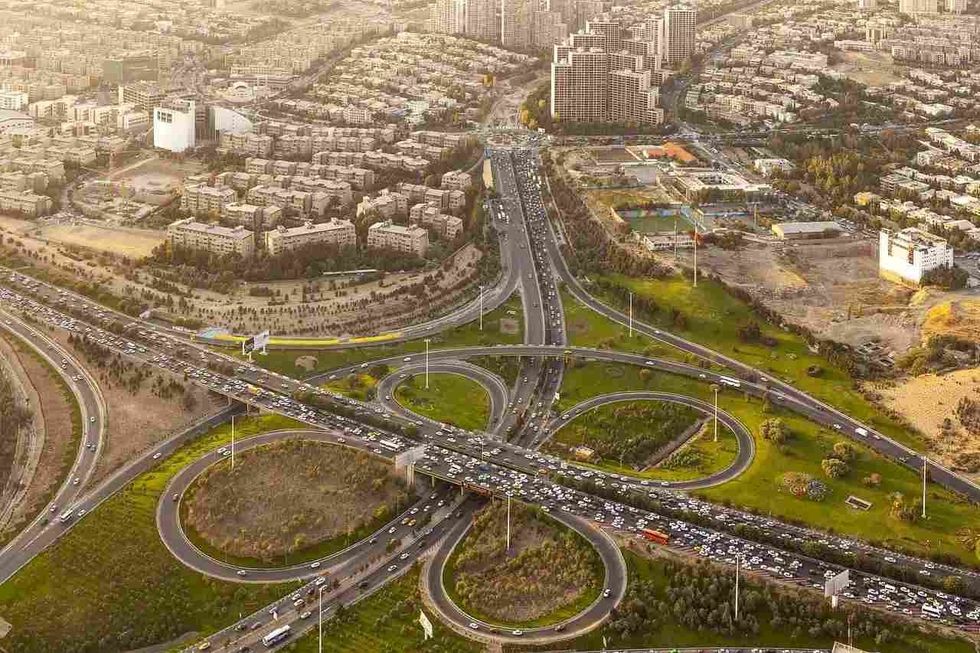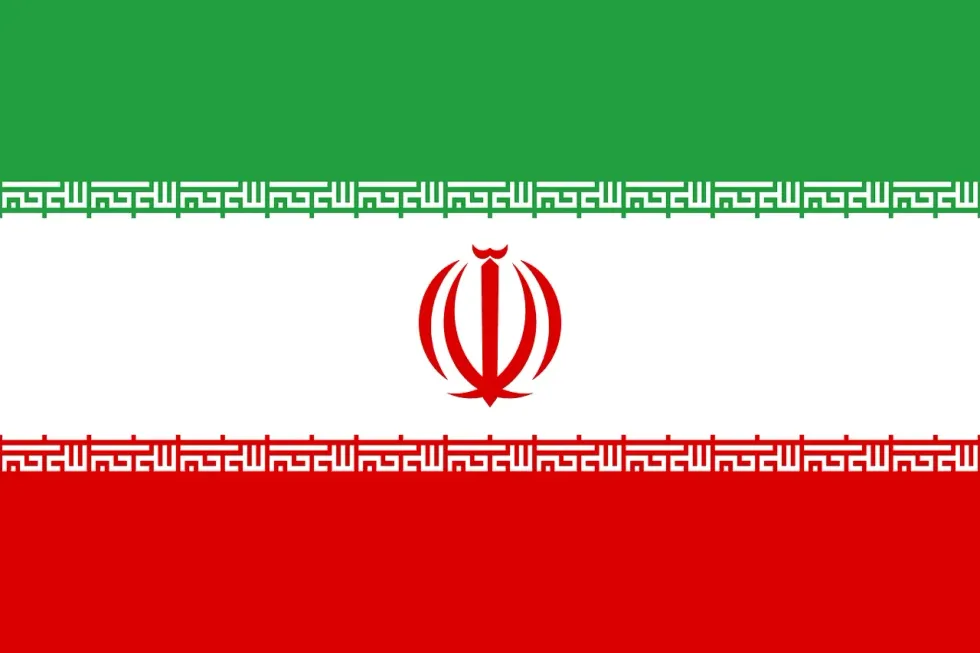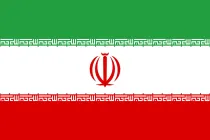199 Iran Government Facts: Learn More About The Islamic Republic

The Islamic Republic of Iran is a nation that has a republican system of governance.
Previously known as Persia, the nation was governed by a monarchical system for a long time. It was after a long time that the governance of the military and economy of the country fell under a legal constitution.
Iranians have a Supreme Leader, who is the religious, as well as executive, head of the country. The Supreme Leader of the country has control over all Iranians and is in charge of the economy, military and judiciary system.
All the top officials who run the country have to be approved by the Supreme Leader in order to hold office. The Supreme Leader not only chooses the nation's leaders but also has the power to remove the elected candidates if he deems them unfit for the position.
In addition to the Supreme Leader, Iran also has a judiciary system, a parliament, and a president. The President of Iran is the executive head and appoints people as members of the cabinet. Each member of the cabinet has a set of duties, such as finance and education.
The judiciary takes care of the legal matters, and the parliament, or Majlis, is responsible for passing bills and amendments. Iran also has an Assembly of Experts, a Guardian Council, and an Expediency Council. Read ahead to learn all about them!
If you enjoy this article, why not also check out Iran culture facts and Iran facts here at Kidadl!
Fun Facts About Iran's Government
Iran, previously known as Persia, is located in the Middle East and is known to have a rather rigid system of governance.
This nation is mostly governed by a central figure, the Supreme Leader, who holds the most amount of power. Next to him, there is a president who is somewhat powerful but still has fewer rights as compared to the Supreme Leader.
This leader is selected by the Assembly of Experts and is equivalent to religious leaders. The current Supreme Leader of the Republic of Iran is Ayatollah Khamenei. This leader is all-powerful in the country and has rights in almost all sectors.
In a way, the Supreme Leader is an autocrat who gives instructions for the functioning of the country. He appoints several representatives who monitor the functioning of all those who work under the president.
We often know the country simply as Iran, but in fact, the official name for the nation is the Islamic Republic of Iran. The majority of citizens of the country follow the Islam religion, particularly the Shia sect.
No less than 96.6% of the country's population is made up of people who define their faith as Islam.
As you may very well understand by this demographic, there is very little diversity in the country. Out of the 96.6% of the citizens that believe in Islam, around 89% are members of the Shia sect.
Before the formation of the Islamic Republic, the country was known as the Persian Empire. This country borders the Persian Gulf and hence, the overthrowing of the Persian Empire gave the government the responsibility of the huge crude oil store of Iran.
The country was ruled by the Pahlavi dynasty, which was a royal family. They were responsible for the economy and military of the country.
The Islamic Republic of Iran was formed after the Iranian Revolution. It was after this significant event in the history of the country that a constitution was adopted.
The constitution of Iran is largely adopted from the religious doctrines that are upheld in Islam.
It is therefore understandable that the utmost power structure in the country would be a man of religious honor and who adheres to the religious texts even for the functioning of a country - which is quite unheard of and rare in the modern-day.
However, this does not mean that there are no elections in the country. Even though the Supreme Leader has the right to overthrow and remove anyone from their position, Iran's people have the constitutional right to choose their president.
It was after the Islamic Revolution that the monarchy was overthrown in the nation and the concept of the Islamic Republic of Iran was brought forward.
Facts About Iran's Political System
The Islamic Republic of Iran has a judiciary system, as well as an executive system. The inner functioning of the nation, however, sometimes tends not to fall in line with what we expect when we hear the word 'republic'.
While the Supreme Leader and holds power over everyone, there is also an elected president. Parliamentary elections form a major part of the politics of Iran.
The Supreme Leader of Iran makes all the potent and important decisions of the Iranian government.
He holds power over the president and all the members of the president's cabinet. The Supreme Leader holds the power to dismiss either the president himself or his cabinet ministers as he wishes, which makes him a huge part of the governance of the country.
The Supreme Leader abides by Islamic law, and particularly the Shia branch of Islam.
The reason behind this is the fact that the majority of the citizens of the country belong to the Shia branch.
Even though members of the Iranian parliament are elected by the people of the country, the Supreme Leader has the power to dismiss them if he understands them as being unable to meet the expectations of the job or are not devout supporters of the Islamic Law.
The present Supreme Leader, Ayatollah Khamenei, is also in charge of national security and the armed forces.
This means that the Supreme Leader decides when the country wants to go to war or remain silent in any clashes that occur throughout the world.
In addition to being in charge of the military, the Supreme Leader also has the ultimate power over the television and press industry of the nation, which means that it is one of the countries in the world that has a rather high degree of censorship in terms of what comes to public knowledge.
The role of the Supreme Leader is sometimes questioned and criticized by other countries as he often practices rather harsh ways of governance.
Since the Iranian Revolution, there have only been two Supreme Leaders of the country.
The Assembly of Experts chooses who gets to sit in the office, and they, in turn, are ultimately chosen and approved by the Supreme Leader himself.
Hence, overthrowing this all-powerful figure in the country is a rather tough task. The Supreme Leader also holds power over the judiciary system in the country, which is rather rare in the world.
This means that any verdict of the judiciary can be overthrown by the Supreme Leader if he sees it as unfit for the country and its citizens.
One of the rather useful powers that the Supreme Leader has would be his power over the Guardian Council. The Guardian Council is responsible for selecting the members of the Assembly of Experts.
This Council consists of 12 people who have the power to veto or approve any legislative bills by the Iranian parliament.
Understandably, such rights are quite extreme and have direct implications in light of the power that the citizens are given.
This Council also handpicks the people who can appear as candidates for offices in the parliament. The Council chooses members of the Assembly of Experts with the approval of the Supreme Leader and also approves or vetoes any presidential candidates based on its own judgment.
Needless to say, this 12 member council is quite powerful in the country, if not all-powerful.
Six of the members of the council are experts in Islamic law and are elected by the Supreme Leader. The other six members are selected by the judiciary and the parliament.
Remember, the member of the judiciary and parliament also have to have an approving nod from the Supreme Leader before they can even appear for election.
The Iranian government is headed by a president. The members of his cabinet have to be approved by the Supreme Leader so as to avoid any issues.
The country's budget is decided by the government and presented before the parliament. If the parliament happens to pass the budget, it has to then go to the Guardian Council for ratification.
No bills or budgets in the Iranian system are passed without a nod from the Guardian Council. The Expediency Discernment Council acts as a middleman and helps in the resolution of any troubles that may have stemmed from the passing of a bill.

Facts About Iran's Election
Iran has two important elections, which are held every four years.
There is a presidential election that elects the executive head of the country. In this election, only the candidates chosen by the Guardian Council can contest.
People place their votes for the candidate that they like best and the person with the most votes wins. However, the president can easily be removed from his office by the Supreme Leader if the situation calls for such actions.
Hence, it is well understood that the power vested in the executive cell of the government is largely filtered. The president chooses a cabinet of ministers.
Each minister has to be approved by the Guardian Council as well, which keeps the power circle pretty closely knit. These cabinet ministers, too, can easily be removed when the Supreme Leader deems fit.
Elections are also held in order to elect the members of parliament, or Majlis. The members of the parliament sure are representatives of the people, but they hardly hold any power over the Supreme Leader.
These are the only two elections that are held in the country.
The cabinet ministers and the president are not entrusted with issues such as national security and the armed forces. Hence, whenever Iran has been associated with any controversial issues such as the production of nuclear weapons or terrorism, the blame has instantly fallen on the Supreme Leader - for the sheer amount of power that he holds.
The Islamic Republic of Iran also has a judiciary system.
At the top of the judiciary system is the Supreme Court- whose top officials are chosen by the Supreme Leader on the basis of merit and overall understanding of Islamic Law. The Iranian constitution is built in such a way that the power circle is very small and allows very little scope of reform.
As you may have noticed, the appointment of the people of power is a right that is limited to a very small group of people.
What this essentially means is that to overthrow any powerful figure in the nation, the citizens have very little say. The all-powerful Supreme Leader is chosen by a group of people who were chosen by him in the first place.
Hence, it is understandable why the country has been able to function with just two Supreme Leaders in all these years!
Facts About The Legal System In Iran
Iran's legal system is headed by the Chief Justice of the Supreme Court.
The constitution demands that the judiciary remains independent of the executive and the legislature, which it does.
The Chief Justice of Iran's Supreme Court is chosen by the Supreme Leader, who chooses the justices of the other courts of the country. The Supreme Leader is responsible for choosing an appropriate Chief Justice, and thereby also has the power to remove them from the office.
Even though the judiciary system of the country stays independent of the executive and legislative wings, the same cannot be said about the authority of the Supreme Leader.
The role of Iran's legal system is to make sure that there are no disputes and crimes are punished in the nation. The constitution clearly and meticulously defines the roles of the judiciary.
Iran's legal system is responsible for the settlement of disputes through proper judgment.
The judiciary is also responsible for making sure that crimes are fought against and any criminals are punished in a constitutional way. The constitution demands that the judiciary system also makes sure that the rights of the citizens are taken care of.
This would include the imposing of proper verdicts in order to make sure that the violation of public rights is curbed to a great extent.
The legal system is also responsible for punishing any person or organization that denies human rights to any citizen. Furthermore, the judiciary plays an active role in the reformation of criminals and making sure that the Islamic Penal Code is followed meticulously.
Iran has been defined as a Theocratic Republic by the CIA World Factbook, and its constitution has been characterized as a 'hybrid' of 'theocratic and democratic components' by Francis Fukuyama.
Here at Kidadl, we have carefully created lots of interesting family-friendly facts for everyone to enjoy! If you liked our suggestions for 199 Iran government facts, then why not take a look at Iran history facts, or Morocco facts.
We Want Your Photos!
More for You
Bachelor of Arts specializing in English Language and Literature

Shirin BiswasBachelor of Arts specializing in English Language and Literature
With a degree in English from Amity University, Noida, Shirin has won awards for oratory, acting, and creative writing. She has a wealth of experience as an English teacher, editor, and writer, having previously worked at Quizzy and Big Books Publishing. Her expertise lies in editing study guides for children and creating engaging content.
Bachelor of Commerce

Niyati ParabBachelor of Commerce
With a background in digital marketing, Niyati brings her expertise to ensure accuracy and authenticity in every piece of content. She has previously written articles for MuseumFacts, a history web magazine, while also handling its digital marketing. In addition to her marketing skills, Niyati is fluent in six languages and has a Commerce degree from Savitribai Phule Pune University. She has also been recognized for her public speaking abilities, holding the position of Vice President of Education at the Toastmasters Club of Pune, where she won several awards and represented the club in writing and speech contests at the area level.
Disclaimer
1) Kidadl is independent and to make our service free to you the reader we are supported by advertising. We hope you love our recommendations for products and services! What we suggest is selected independently by the Kidadl team. If you purchase using the Buy Now button we may earn a small commission. This does not influence our choices. Prices are correct and items are available at the time the article was published but we cannot guarantee that on the time of reading. Please note that Kidadl is a participant in the Amazon Services LLC Associates Program, an affiliate advertising program designed to provide a means for sites to earn advertising fees by advertising and linking to Amazon. We also link to other websites, but are not responsible for their content.
2) At Kidadl, we strive to recommend the very best activities and events. We will always aim to give you accurate information at the date of publication - however, information does change, so it’s important you do your own research, double-check and make the decision that is right for your family. We recognise that not all activities and ideas are appropriate for all children and families or in all circumstances. Our recommended activities are based on age but these are a guide. We recommend that these ideas are used as inspiration, that ideas are undertaken with appropriate adult supervision, and that each adult uses their own discretion and knowledge of their children to consider the safety and suitability. Kidadl cannot accept liability for the execution of these ideas, and parental supervision is advised at all times, as safety is paramount. Anyone using the information provided by Kidadl does so at their own risk and we can not accept liability if things go wrong.
3) Because we are an educational resource, we have quotes and facts about a range of historical and modern figures. We do not endorse the actions of or rhetoric of all the people included in these collections, but we think they are important for growing minds to learn about under the guidance of parents or guardians.







